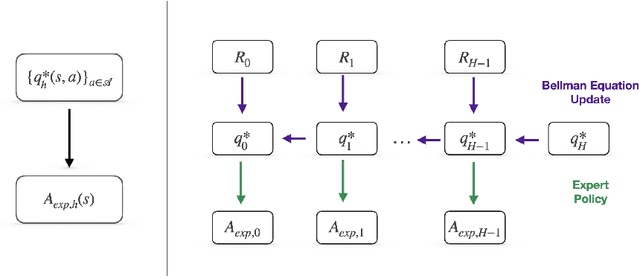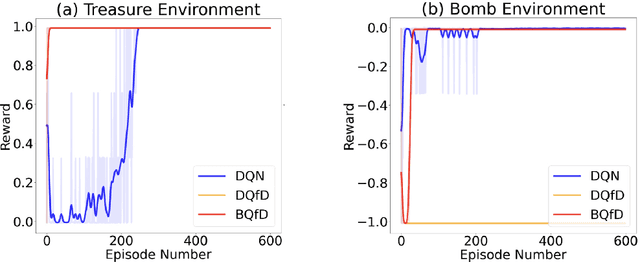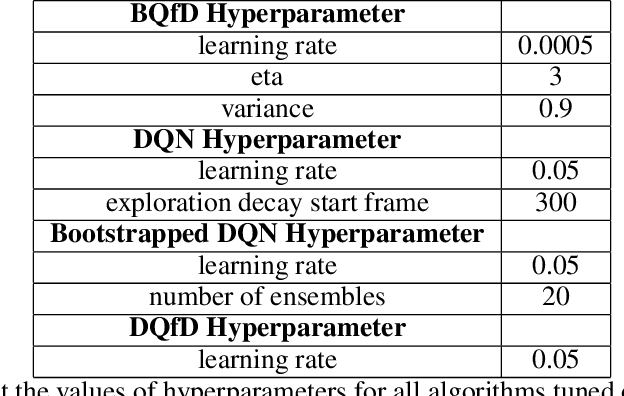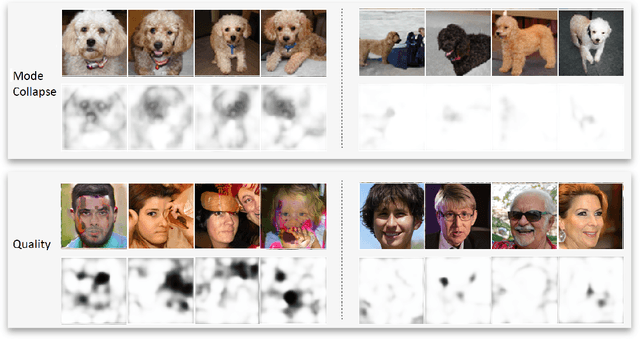Xiru Zhu
Equal Contribution
Bayesian Q-learning With Imperfect Expert Demonstrations
Oct 01, 2022



Abstract:Guided exploration with expert demonstrations improves data efficiency for reinforcement learning, but current algorithms often overuse expert information. We propose a novel algorithm to speed up Q-learning with the help of a limited amount of imperfect expert demonstrations. The algorithm avoids excessive reliance on expert data by relaxing the optimal expert assumption and gradually reducing the usage of uninformative expert data. Experimentally, we evaluate our approach on a sparse-reward chain environment and six more complicated Atari games with delayed rewards. With the proposed methods, we can achieve better results than Deep Q-learning from Demonstrations (Hester et al., 2017) in most environments.
Detecting GAN generated errors
Dec 02, 2019



Abstract:Despite an impressive performance from the latest GAN for generating hyper-realistic images, GAN discriminators have difficulty evaluating the quality of an individual generated sample. This is because the task of evaluating the quality of a generated image differs from deciding if an image is real or fake. A generated image could be perfect except in a single area but still be detected as fake. Instead, we propose a novel approach for detecting where errors occur within a generated image. By collaging real images with generated images, we compute for each pixel, whether it belongs to the real distribution or generated distribution. Furthermore, we leverage attention to model long-range dependency; this allows detection of errors which are reasonable locally but not holistically. For evaluation, we show that our error detection can act as a quality metric for an individual image, unlike FID and IS. We leverage Improved Wasserstein, BigGAN, and StyleGAN to show a ranking based on our metric correlates impressively with FID scores. Our work opens the door for better understanding of GAN and the ability to select the best samples from a GAN model.
 Add to Chrome
Add to Chrome Add to Firefox
Add to Firefox Add to Edge
Add to Edge